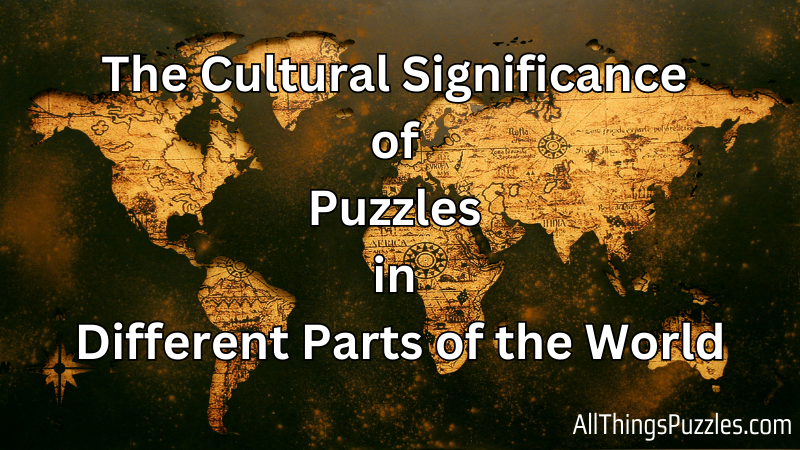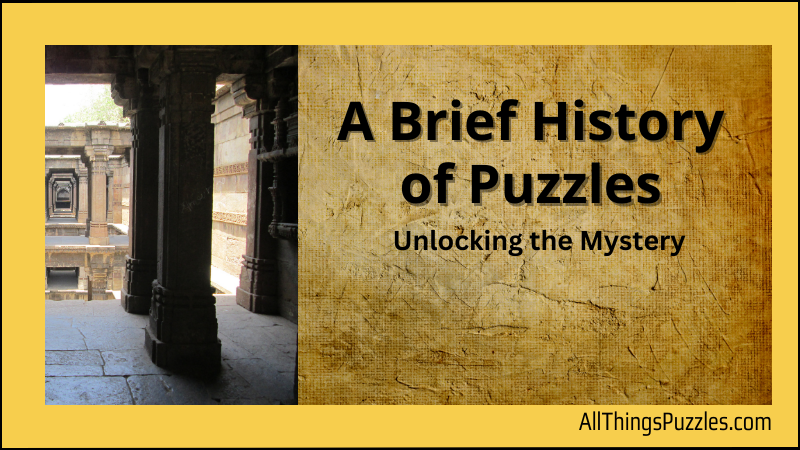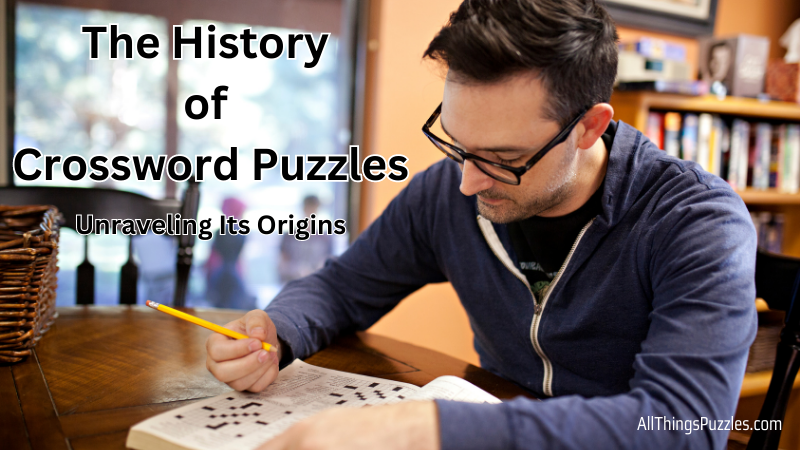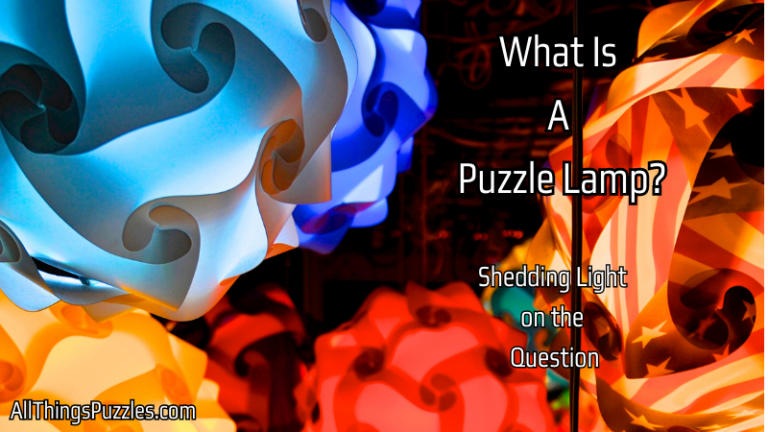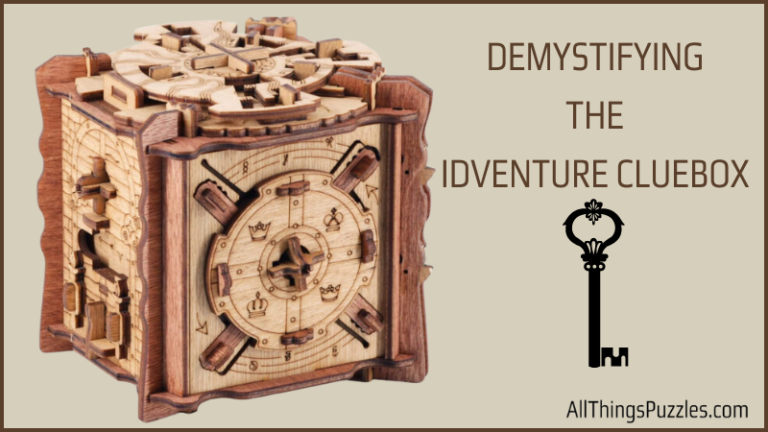In this blog, we explore the cultural significance of puzzles in the world. We take a deep dive into how different cultures use puzzles to connect with each other and pass down traditions from generation to generation. We also examine the role of puzzles in education and how they can be used to teach valuable life skills.
Puzzles have etched their way into the fabric of cultural history, providing more than mere amusement; they serve as a bridge between past and present, blending the art of storytelling with the challenge of problem-solving. With roots stretching back to the analytical inventions of ancient Egypt and China, these brain teasers have evolved over time, from the flat wooden maps carved in the late 18th century by John Spilsbury, to the diverse and intricate designs of the modern-day. Across the continents, from Asia’s mechanical puzzles and intricate designs to Europe’s rich puzzle heritage and America’s puzzle diversity, these enigmatic creations embody the values, beliefs, and customs of numerous societies.
Join us on this journey as we explore the fascinating world of puzzles!
Key Takeaways:
- Puzzles have played an important role in cultural traditions and history, fostering connectivity and learning through centuries.
- Across cultures and historical periods, puzzles have evolved into varied forms, from wooden puzzles of the past to the complexity of modern digital puzzles.
- The enjoyment and educational value of puzzles continue to thrive, demonstrating their timeless allure and importance in strengthening problem-solving abilities.
Puzzle Traditions in Asia
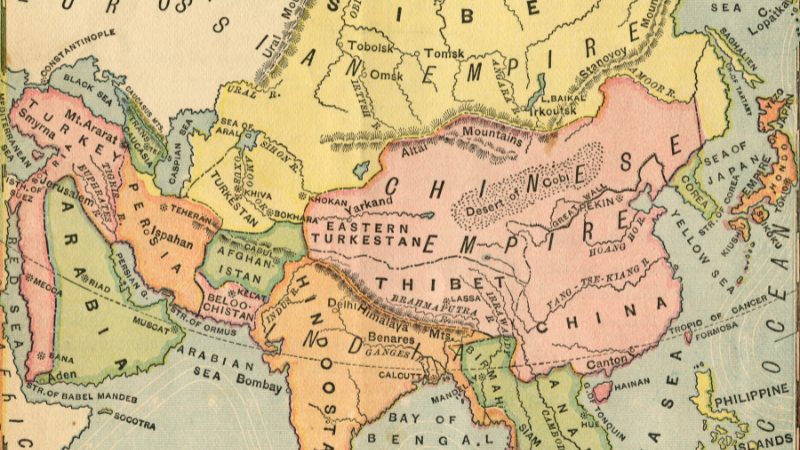
Asian culture has a rich history of puzzles that have been played for centuries.Asia is a treasure trove of puzzle traditions, with each country boasting its own unique contributions.
Cultural Puzzle Examples from Asia Include:
Chinese puzzles, such as the ancient Tangram, hold a special place in Chinese culture. These geometric puzzles have been used to convey philosophical concepts and cultivate logical thinking for centuries. These simple yet engaging puzzle pieces fit together in countless ways, offering hours of entertainment while enhancing intellect.
In Japan, one can discover the intricacies of mechanical puzzles, such as puzzle boxes with secret compartments, reflecting the detailed craftsmanship inherent in Japanese culture. The profound enjoyment of constructing origami figures stands testament to the patience and focus encouraged from a tender age.
Prominent among number puzzles is Sudoku, which, though popular today, has its humble beginnings in Japan. Sudoku challenges players of all ages, fostering logic and attention to detail.
In the realm of India, traditional riddles and brain teasers are woven into the cultural fabric, promoting a zest for inquiry and problem-solving abilities since the days of lore.
Moreover, throughout Asia, puzzles have often been employed as educational tools, assisting in teaching children geography and vital critical-thinking skills. Embraced by a wider audience, these fascinating puzzles continue to be a beloved pastime across generations.
Puzzle Heritage in Europe

Europe has a rich puzzle heritage, with various countries showcasing distinct puzzle traditions.
Cultural Puzzle Examples from Europe Include:
In Britain, crossword puzzles have become entwined with the nation’s cultural fabric, often seen in literature and newsprint, highlighting wit and intelligence through cryptic clues.
Germany prides itself on mechanical puzzles, which speak to the nation’s reputation for precision and its historical contribution to engineering and the skilled trades.
Scandinavia hosts puzzle hunts, merging competitive spirit with festivities, a testament to puzzles as a dynamic element of cultural festivities.
Puzzles have played an important role in European culture, providing both entertainment and educational benefits to people of all ages.
Puzzle Diversity in the Americas
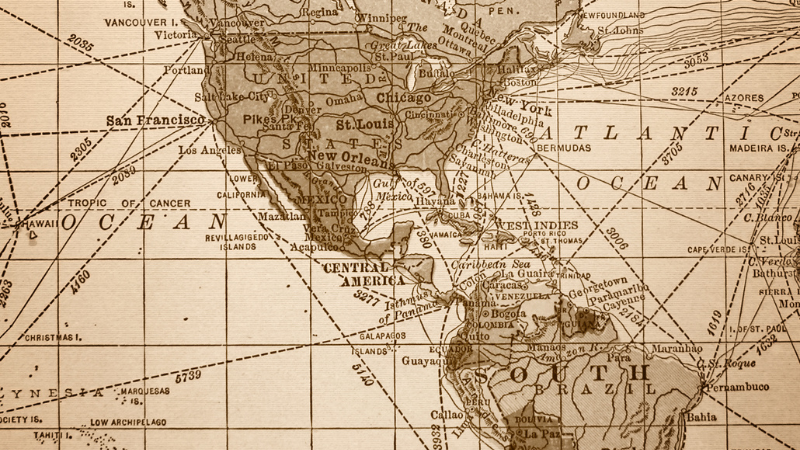
North and South America boast a diverse array of puzzle traditions, each offering unique insights into their respective cultures.
Cultural Puzzle Examples from the Americas Include:
Puzzle traditions throughout the Americas reflect the heritage and ingenuity of their cultures.
- North America: Indigenous tribes craft puzzle baskets embedding tales and tribal emblems, symbolizing heritage preservation. Artisans produce wooden puzzles that carry forward historical narratives.
- South America: Tribes like the Aztecs and Mayans left behind complex puzzles, revealing their creativity. “Juegos de ingenio” remain deeply rooted in Latin American cultural activities.
Crossword puzzles have found a home in newspapers, providing hours of entertainment and social interaction. Mobile apps have modernized access to online puzzles, including crosswords, reaching a wider audience. These apps offer new puzzles daily, which cheerfully challenge the problem-solving skills and spatial reasoning of a popular pastime enjoyed by people of all ages.
Puzzle Connections in Africa
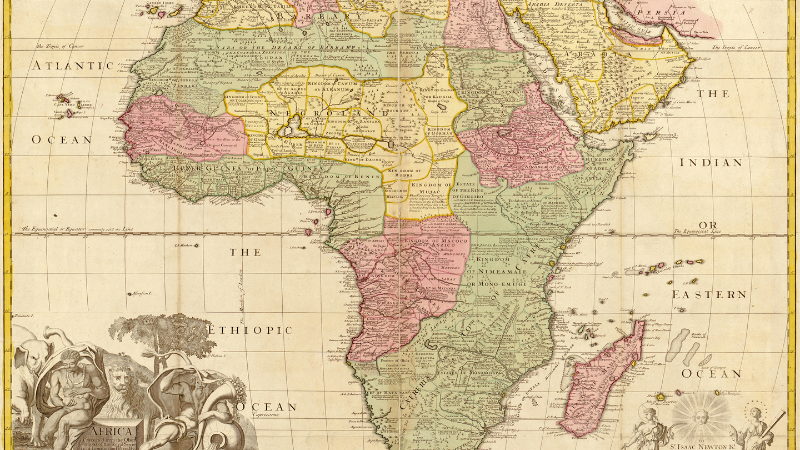
Africa is a continent teeming with puzzle traditions, deeply intertwined with its rich tapestry of cultures.
Cultural Puzzle Examples from Africa Include:
Tribal and Ceremonial Puzzles
In African societies, ceremonies often incorporate puzzles such as masks, embodying the connection to ancestors and embodying deep spiritual meanings. These works of art are not merely for display; they are integral in rituals and are a testament to the preservation of culture.
Beaded Narratives
Beadwork in puzzles isn’t just decorative; it’s a form of storytelling. Through small, colorful pieces, histories are passed down, preserving traditions and sustaining the rich cultural heritage of ancient civilizations like that of Ancient Egypt.
Social Games and Community
Games like Mancala, born from the early societies of Africa, have transcended generations, using simple elements to build complex social bonds. They confirm puzzles’ role in fostering unity and imparting problem-solving skills to people of all ages.
Educational Role of Puzzles
African puzzles have always been more than leisure; they’re educational tools. Artifacts such as puzzle games not only entertain but also sharpen minds, reflecting a tradition of ingenuity akin to the earliest known jigsaw puzzles.
Common Questions About Puzzles
Are puzzles considered a form of art?
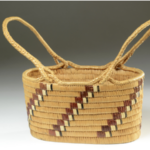
Yes, puzzles can indeed be considered a form of art. Many traditional puzzles from different parts of the world showcase intricate designs, skilled craftsmanship, and cultural symbolism.
For example, puzzle baskets created by Native American tribes are not only functional but also reflect the artistry and cultural heritage of the tribe.
Similarly, puzzle masks in Africa are intricately carved and adorned, representing a fusion of artistic expression and cultural significance.
How do puzzles contribute to cultural preservation?

Puzzles play a vital role in cultural preservation by serving as tangible links to the past. In many societies, puzzles have been passed down through generations, preserving traditional designs, techniques, and stories.
By engaging in puzzles, individuals can connect with their cultural roots, understand historical narratives, and contribute to the continuity of cultural heritage.
Handcrafted puzzles, such as those found in Europe and Africa, are not only sources of entertainment but also tangible artifacts that hold cultural and historical value.
Do puzzles have educational benefits beyond entertainment?

Absolutely! Puzzles offer numerous educational benefits beyond mere entertainment. They enhance cognitive skills, such as problem-solving, logical reasoning, spatial awareness, and critical thinking.
In various cultures, puzzles have been used as educational tools to teach mathematical concepts, promote memory retention, and develop patience and perseverance.
Additionally, puzzles encourage cultural exploration and foster an appreciation for diversity by introducing individuals to different puzzle traditions from around the world.
Reflecting on Puzzles as a Cultural Bridge
From their humble beginnings, puzzles have become a beloved pastime, bridging cultures and generations. The origins of jigsaw puzzles trace back to the late 18th century when John Spilsbury, a British cartographer, mounted a map of the world on a wooden board, creating a learning tool to teach children geography. This very first jigsaw puzzle laid the groundwork for the rich history of puzzles that would follow, from ancient Egypt to modern digital apps.
Puzzles have evolved over time, with early 20th-century innovators turning to cardboard puzzles due to their affordability and increasing profit margins. Crossword puzzles emerged during the Great Depression, providing hours of entertainment and a welcome distraction. Throughout the twentieth century, the popularity of puzzles soared, particularly during World War II, when they served as a comfort to families and a therapeutic tool for convalescing soldiers.
Today, whether through wooden puzzles featuring intricate designs or digital puzzles with varying difficulty levels, the enjoyment of sorting through small pieces to complete a new puzzle continues to engage people of all ages. As puzzle makers develop new materials and puzzle formats, including mobile apps, this popular pastime adapts and thrives, reflecting our enduring appreciation for problem-solving skills and a shared sense of accomplishment.
In embracing puzzles, you join a worldwide community of puzzle enthusiasts—from the earliest known jigsaw puzzles crafted for the children of King George III to the latest creations that bring the beauty of famous paintings and the challenge of mechanical puzzles right to your living room. Puzzles, as a beloved form of entertainment, continue to offer not only a great way to sharpen our problem-solving abilities but also serve as a testament to the human mind’s affinity for challenges and the sheer joy of discovery.
Thank you for reading. Do you have any memories of doing puzzles in your home as a kid? Please comment below.
